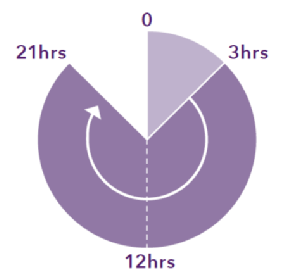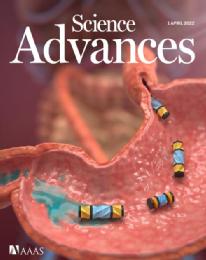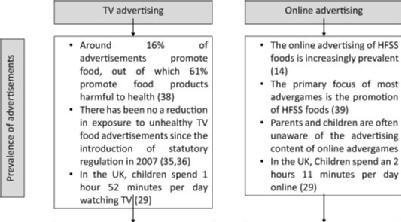Healthy Food
Below is a selection of activities our members have been involved in.
Are you working on a related project? Does your research cover the theme of food and health? Get involved and join our research network today.
Obesity stigma is harmful for public health
Obesity stigma does not prevent obesity. A combined, concerted, and sustained effort from multiple stakeholders and key decision-makers within society is required to dispel myths around personal responsibility for body weight, and to foster more empathy for people living in larger bodies. This also sets the scene for more effective policies and interventions, targeting the social and environmental drivers of health, to ultimately improve population health.
Read the full articleLink opens in a new window (published in Current Obesity Reports)

How did diets change during lockdown?
“There has been widespread speculation that diets became less healthy during lockdown as a result of supply chain challenges and increased difficulty accessing shops and markets, and we wanted to investigate this.
“Perhaps surprisingly, we discovered that overall, people’s diets changed very little. If anything, people ate slightly more fruit and veg during lockdown than afterwards.
“The only group which significantly changed their eating habits were women who would otherwise have been commuting over an hour a day. We speculate that replacing the commute with working from home enabled this group to commit time and energy to exploring healthier meals.”
Read a summary of the researchLink opens in a new window or download the full articleLink opens in a new window (published in BMJ Nutrition)

World Hypertension Day 2022Link opens in a new window - 17 May
A global call to action, co-authored by Professor Franco CappuccioLink opens in a new window (Warwick Medical SchoolLink opens in a new window - Mental Health and WellbeingLink opens in a new window) and published in the Journal of Human HypertensionLink opens in a new window on World Hypertension DayLink opens in a new window. Three global organizations (World Hypertension League, Resolve to Save Lives, and the International Society of Hypertension) call to reduce population dietary salt consumption to reduce the burden of cardiovascular disease. This call is needed considering yet another ongoing falseLink opens in a new window controversyLink opens in a new window to confuse the minds of policy makers and distract from the need to reduce population salt consumption.
Read the call to actionLink opens in a new window (pdfLink opens in a new window)


Is intermittent fasting the way to deal with obesity?
Our first patient information leaflet provides information on how effective intermittent fasting is as a way to lose and keep off weight, and what the pros and cons are. This information was put together following a request from a patient in the UHCW weight management clinic, by Dr Petra HansonLink opens in a new window. The review of the evidence underlying this leaflet is described in more detail in a article for academics and practitioners (currently under revision for publication at a peer-reviewed journal), and is explained for a general audience in this podcastLink opens in a new window.
Download the patient information leafletLink opens in a new window
Download the leaflet with referencesLink opens in a new window

How distorted food prices discourage a healthy diet
In a new article, published in Science AdvancesLink opens in a new window, Roberto PancraziLink opens in a new window, Thijs van RensLink opens in a new window (lead of the Warwick Obesity NetworkLink opens in a new window), and Marija VukoticLink opens in a new window, all of the Department of EconomicsLink opens in a new window, argue that the environment is an important driver of poor diets. They show that price distortions due to fixed costs in production and retail account for one-third of the gap between the recommended and actual intake of fruits and vegetables. A subsidy on fruit and vegetables of 25%, funded through a small progressive tax increase, would fix these distortions, improve diets, and benefit all consumers.
Read the articleLink opens in a new window or watch a 4-minute explainer videoLink opens in a new window

WIE Award for a mobile healthy food market for CoventryLink opens in a new window
In collaboration with Coventry FoodbankLink opens in a new window, Thijs van RensLink opens in a new window and Oyinlola OyebodeLink opens in a new window, both members of the Warwick Obesity NetworkLink opens in a new window, were awarded funding from the Warwick Institute for EngagementLink opens in a new window's (WIE) Collaboration and Co-Production FundLink opens in a new window. The money will contribute to the refitting of an old St John's ambulance as a mobile healthy food market for Coventry. The mobile sales point for vegetables and fruits will serve neighbourhoods in Coventry where access to healthy food is low. In the longer run, the van will also serve as a platform for “field experiments” to better understand the barriers to healthy diets.

Food advertising causes obesity among children
The relationship between obesity and exposure to food advertising meets all criteria commonly used to demonstrate the presence of a causal relationship in epidemiology. Younger children (≤ 8 years old) and children from socio-economically disadvantaged and ethnic minority backgrounds are particularly affected. This evidence review, published in Preventive Medicine Reports, follows earlier written testimony to the government by the lead author, Paul Coleman, who also discussed the evidence in this podcast.

The urban food environment in low-income and middle-income countries
A new article on the influence of the urban food environment on diet, nutrition and health outcomes in low-income and middle-income countries, by Oyinlola Oyebode, a member of the Warwick Obesity Network, and her team, was published in the BMJ Global Health. The study argues that 'zoning’ or ‘healthy food cart’ interventions to alter food availability are appropriate in urban LMIC. This conclusion is based on a systematic review of 9 databases from 2000 to 2020 without language restrictions, resulting in 74 eligible studies, which found consistent evidence that availability characteristics in the neighbourhood food environment affects dietary behaviour, and likely health or nutrition outcomes as well. Availability was also important in the school food environment, but it was not possible to examine the workplace and home food environments, due to a substantial evidence gap on this topic in low- and middle-income countries.

Warwick Obesity Network: achievements and future plans
Thijs van Rens presents the research and future plans of the Warwick Obesity Network at the University's symposium on Sustainable Coventry and Warwickshire. A recording of the presentation (and the slides) is available here.

How effective is intermittent fasting really?
Intermittent fasting is a trendy way to try and become healthier. In this podcast, Alice Coffey and Petra Hanson discuss whether intermittent fasting actually works, and whether it has a role in weight loss and diabetes management. Alice is a PhD student in Global Sustainable Development at the University of Warwick. Petra Hanson is a clinical research fellow at the University Hospital Coventry and Warwickshire NHS Trust in the UK. Together they wrote a literature review on the effects of intermittent fasting on weight loss, metabolic health and insulin resistance.
Find out more about the podcast or listen to it on Apple Podcasts or Spotify.

COVID-19 outcomes in minority ethnic groups: do obesity and metabolic risk play a role?
Paul Coleman, Thomas M. Barber, Thijs van Rens, Petra Hanson, Alice Coffey, and Oyinlola Oyebode, all members of the Warwick Obesity Network, discuss differences in Covid-19 outcomes across ethnic groups, and whether these may be explained in part by differences in metabolic risk due to obesity and overweight. Read the full paper, which is published in Current Obesity Reports.

Time to substitute sports sponsors for healthier alternatives
Footballer and captain of the Portugal Euro 2020 team, Cristiano Ronaldo, went viral for removing Coca-Cola bottles from view during a pre-match press conference, and seemingly encouraging viewers to drink water instead. Sport has long been sponsored by unhealthy products, but maybe it’s time to give them the red card, suggests Dr Oyinlola Oyebode, expert in public health from Warwick Medical School and a member of the Warwick Obesity Network. Read more here or follow the debate on Twitter.

UK government's announcement of pre-9pm ban on junk food adverts
Dr Petra Hanson of the Warwick Obesity Network comments on the announced of a ban on advertising HFSS foods on TV and online. “I remain very concerned about children’s exposure to unhealthy food advertisements,” she said. “Children have continued to be exposed to unhealthy adverts. Young adults will continue to be exposed to unhealthy food advertisements after 9pm, and we know that eating habits developed in early life often persist into adulthood.” writes the Guardian.

Is the microbiome another organ? Maybe we should treat it as such
Dr Petra Hanson and Dr Thomas M. Barber, of the Warwick Obesity Network, discuss the microbiome, the importance of fibre in our diet, and the marketing hype behind probiotics. Read the full article in Medical News Today.

Banning ads for unhealthy foods that target kids in the UK (podcast)
Dr Paul ColemanLink opens in a new window, Public Health Registrar and Honorary Research Fellow at Warwick Medical SchoolLink opens in a new window, and a member of the Warwick Obesity NetworkLink opens in a new window, talks to Julia JosephLink opens in a new window about the connections between obesity and advertisements of unhealthy fast food products, and explains why the evidence justifies a total ban of such advertising. Dr Coleman has previously provided written evidenceLink opens in a new window to the UK Government consultationLink opens in a new window on such a ban.
Find out more about the podcastLink opens in a new window or listen to it on Apple PodcastsLink opens in a new window or SpotifyLink opens in a new window.
Building a food system that works for everyone
The food system has become increasingly wasteful, processed and environmentally damaging. In a new report by the IPPR, University of Warwick researchers and members of the Warwick Obesity Network Paul Coleman and Oyinlola Oyebode describe their recommendations on how to fix it.

Ethnicity-specific BMI cutoffs for obesity
Revisions of ethnicity-specific BMI cutoffs are needed to ensure that minority ethnic populations are provided with appropriate clinical surveillance to optimise the prevention, early diagnosis, and timely management of type 2 diabetes. New paper by Warwick Obesity Network member Tom Barber published in The Lancet Diabetes and Endocrinology.

7 Principles to Mindful Eating (podcast)
Dr Petra Hanson, clinical research fellow at the University Hospital Coventry and Warwickshire and a member of the Warwick Obesity Network, discusses how mindfulness practice can improve not just weight management but our mental well-being with diabetes, shifting from a lack of self-compassion to an increase of self-love, and making overall healthier food choices. Find out more about the podcast or listen to it on Apple Podcasts or Spotify.

Podcast "The economics of diet and health"
Dr Thijs van Rens discusses how people’s diets are affected by their income levels and the area they live in. Is the obesity epidemic due to people’s choices and preferences, or is it caused by factors in the external environment such as the price and availability of food? To what extent should policymakers intervene?
Dr Thijs Van Rens is an Associate Professor in the Department of Economics at the University of Warwick. Find out more about his research.
Evidence review: Restrictions on Food Advertising and Obesity
The Warwick Obesity Network contributed to the government consultation on the total restriction of online advertising for products high in fat, sugar and salt (HFSS). Petra Hanson and Paul Coleman conducted a rapid review of medical research on the links between advertising and childhood obesity. They found that the relationship between childhood obesity and exposure to food advertising meets all criteria commonly used to demonstrate the presence of a causal relationship in epidemiology. Children from socio-economically disadvantaged and ethnic minority backgrounds are particularly vulnerable to this kind of advertising. Further restrictions on HFSS advertising, already widely supported by the general public and health care professionals, are fully justified by the scientific evidence.

A Healthier and Fairer Food System in Birmingham
Residents in the West Midlands could enjoy healthier and more affordable food in the future thanks to a new research project, with the participation of Thijs van Rens, Associate Professor in the Department of Economics and co-lead of the Food GRP. The Mandala Consortium has been awarded a five-year grant by the UK Government for a research project which could transform the local urban food system and its relationship with the wider regional economy, focusing on the city of Birmingham as a pilot project.
Warwick Obesity Network launches
An interdisciplinary group of academics and clinicians at the University of Warwick, brought together under the Food and Health theme of the Global Research Priority on Food, was awarded an ESRC IAA Internal Network Grant to provide evidence-based support for obesity interventions in times of Covid-19. The network is led by Thijs van Rens (Economics) and its members include Lena Alkhudairy, Lola Oyebode and Paul Coleman (Warwick Medical School), Thomas M. Barber and Petra Hanson (UHCW Obesity Service), Lukasz Walasek (Psychology), and Redzo Mujcic (Warwick Business School).


Obesity and the Food Environment
Our upcoming theme workshop will explore the role of the food environment in poor dietary behaviour and obesity. Worldwide, the prevalence of obesity has doubled since the 80's. Currently nearly a third of the world's population and two thirds of adults in the UK are either overweight or obese. The NHS spends £5.8 billion per year on diseases associated with poor diet.
The workshop with consider causes and consequences of the food environment, as well as possible interventions.

Birmingham Healthy Food City
Birmingham City Council kicked off a year of food conversations in the city with the launch of the National Food Conversation on 23 October 2019.
Warwick scientists were involved in the academic round table to discuss the challenges and opportunities to influence and shape the food environment and to understand the barriers to providing healthy and affordable food for all citizens.

2BHEALTHY in Greener Britain
Scientists here at Warwick have been working to develop new varieties of haricot beans, a great source of fibre, protein and iron, in the UK. These new types of bean can thrive in our climate. We are helping shape the future of healthy eating in Britain.

Obesity Treatment
The number of overweight and obese children has increased globally, and can be associated with short and long term health consequences. A Cochrane systematic review by researchers from Warwick Medical School and other institutions assesses the effects of diet, physical activity and behavioural intentions for the treatment of overweight or obesity in children up to six years. The authors conclude that multicomponent interventions appear to be an effective treatment option and that dietary interventions focusing on dairy intake may be effective in the longer term, but not energy-restricted diets.

Childhood Obesity Policy
The House of Commons Health and Social Care Committee published a report on their inquiry into childhood obesity, Childhood Obesity: Time for Action. The report recommends a range of national government interventions to fight obesity.
The report's section on fiscal measures relies heavily on input from Warwick economist and Food GRP co-lead Dr Thijs van Rens.

Soft Drink Levy
A Warwick political scientist and a Warwick economist have argued that the tax on sugary drinks makes good political and economic sense.
Find out why the case against the soft drink levy appears to be sugar coated.



